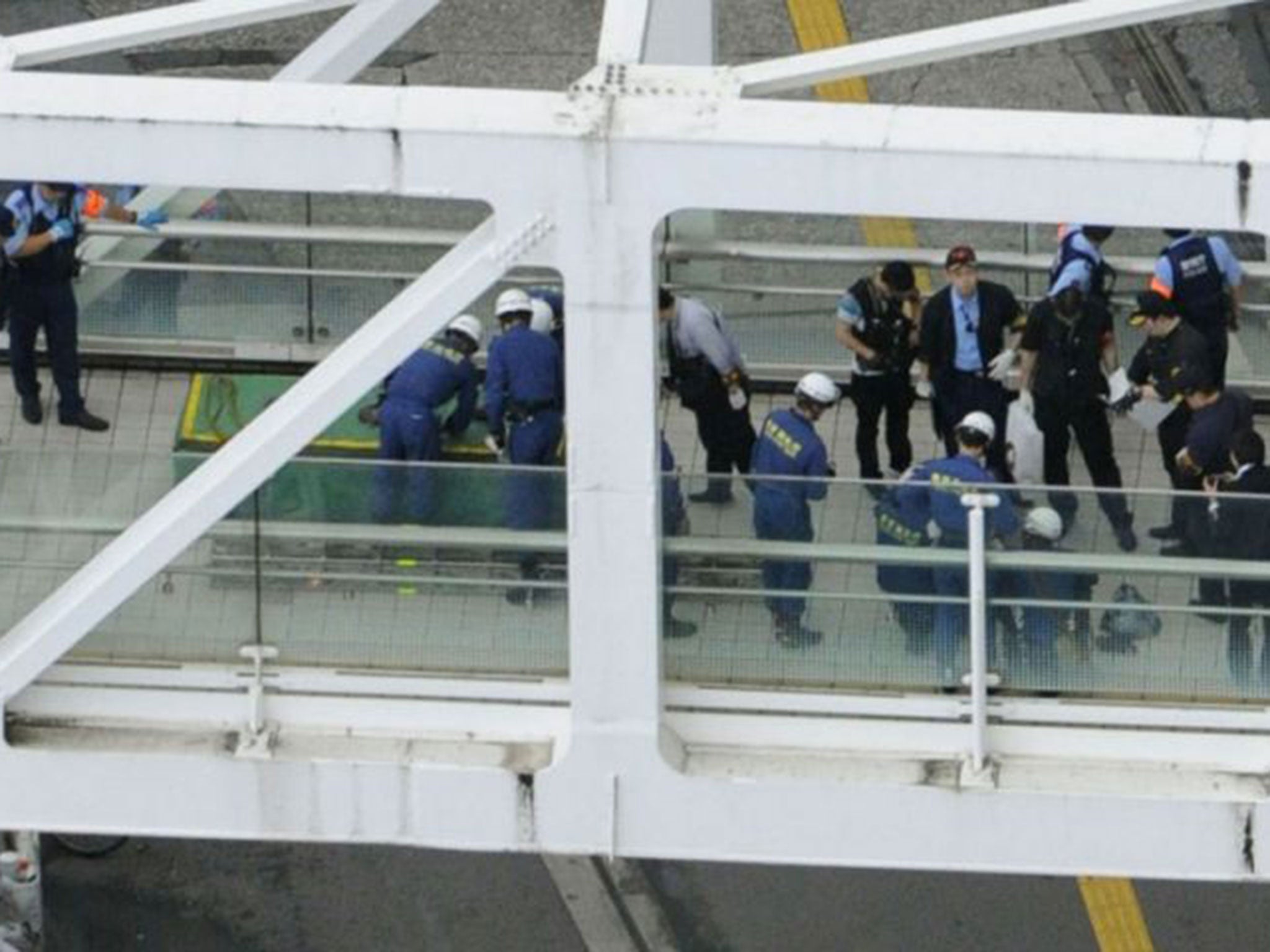Japanese man sets himself on fire in Tokyo in protest at Shinzo Abe's foreign policy

Your support helps us to tell the story
From reproductive rights to climate change to Big Tech, The Independent is on the ground when the story is developing. Whether it's investigating the financials of Elon Musk's pro-Trump PAC or producing our latest documentary, 'The A Word', which shines a light on the American women fighting for reproductive rights, we know how important it is to parse out the facts from the messaging.
At such a critical moment in US history, we need reporters on the ground. Your donation allows us to keep sending journalists to speak to both sides of the story.
The Independent is trusted by Americans across the entire political spectrum. And unlike many other quality news outlets, we choose not to lock Americans out of our reporting and analysis with paywalls. We believe quality journalism should be available to everyone, paid for by those who can afford it.
Your support makes all the difference.A Japanese man set himself on fire to protest Prime Minister Shinzo Abe’s plans to expand its military powers.
The self-immolation occurred near Shinjuku station, a bustling area in Tokyo. The man is in the hospital and is expected to survive according to the Japan Times.
Yuto Ishida, who witnessed the incident, said the man was carrying a large bottle and first he thought he was drunk.
“Everybody who happened to be there stopped to watch what was happening,” Ishida told Japan Times. “The moment the man set himself on fire, the audience burst into screams, and we were all left in total shock.
Witnesses said the man was seated on a pedestrian bridge and used a megaphone to protest the plan to end a ban on “collective self-defence,” which would allow Japan to aid an ally under attack.
“He was sitting cross legged and was just talking, so I thought it would end without incident. But when I came back to the same place 30 minutes later, he was still there. Then all of a sudden his body was enveloped in fire,” said witness Ryuichiro Nakatsu.
After World War Two, Japan adopted a US-drafted constitution that had a clause preventing the country from fighting abroad. Abe’s cabinet is expected to adopt a resolution lifting this constitutional ban after his party can reach an agreement with its junior partner.
Conservative party members said the ban has restricted Japan’s military powers too much, and China’s increased presence in the region requires a more flexible policy.
Join our commenting forum
Join thought-provoking conversations, follow other Independent readers and see their replies
Comments